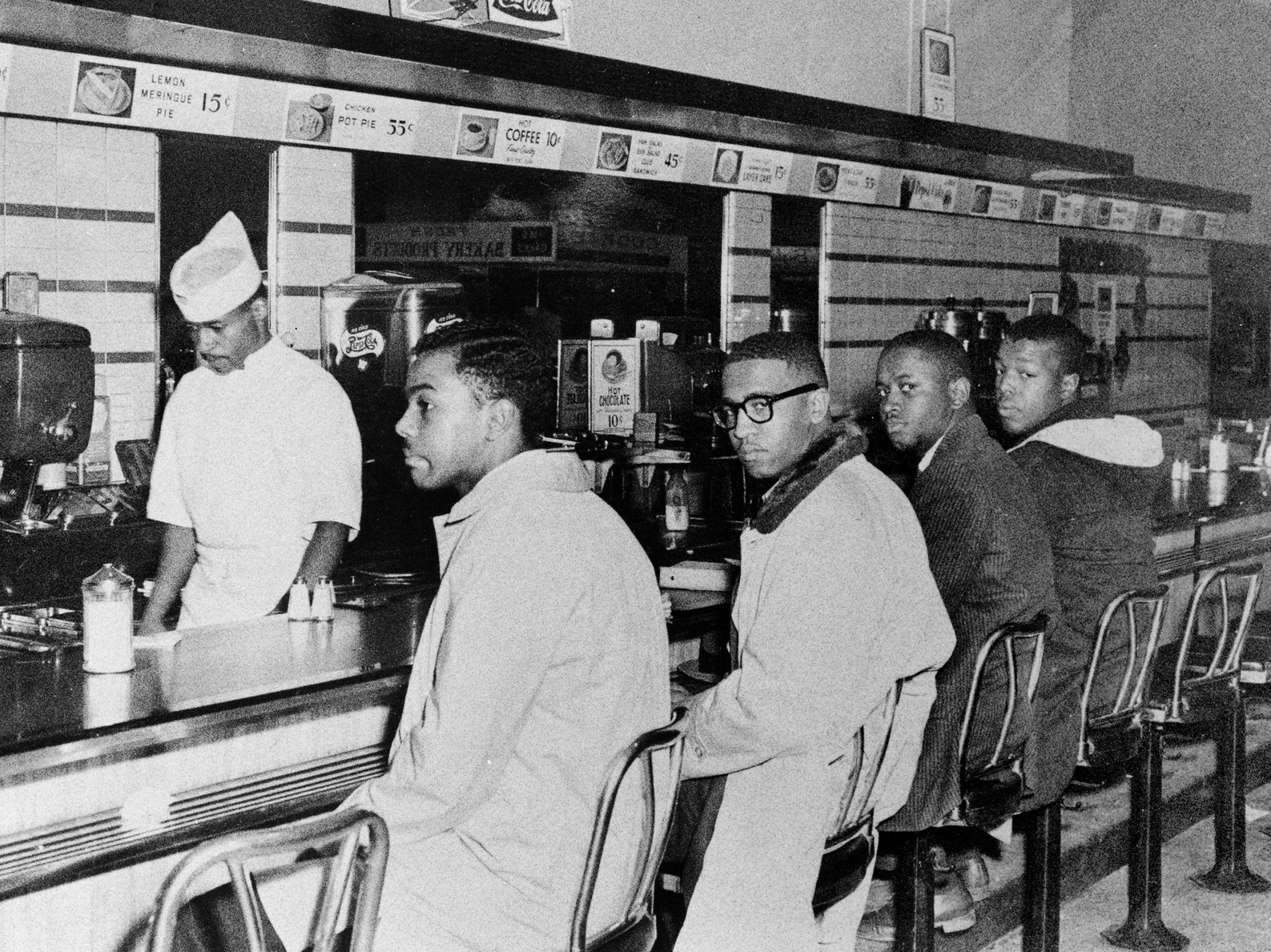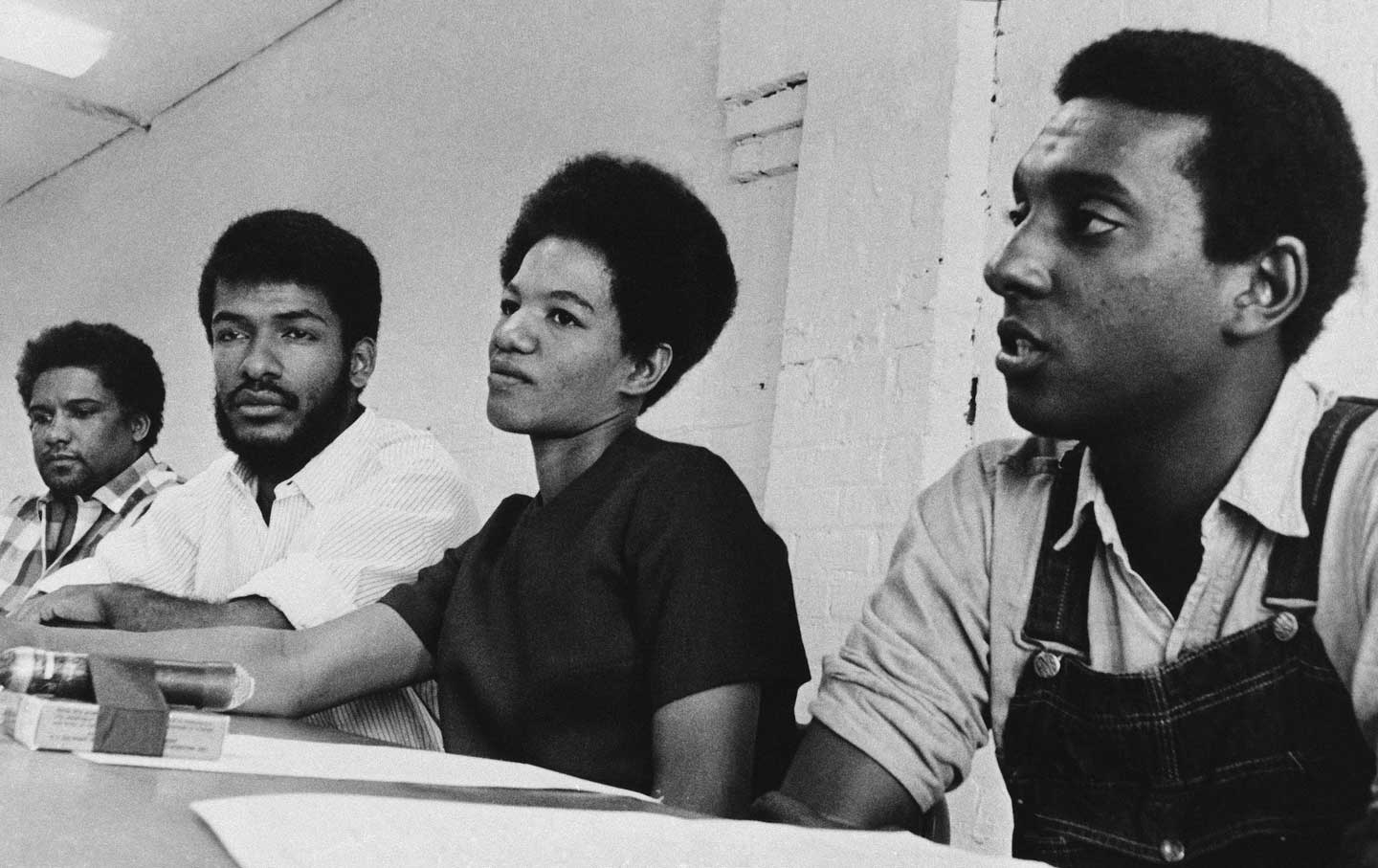On Feb. 1, 1960, four North Carolina A&T students changed the world. Spurred by Emmett Till's murder, they sat down at a lunch counter defying the racist laws that took away the rights of black people across the South and turned them into second-class citizens. Segregation kept whites in power, but that power was challenged daily and being dismantled. This bold act sparked a movement bringing businesses to their knees. Now, 58 years later, we celebrate the people who risked their lives to stare down white supremacy and change an immoral system.

The Greensboro Four
Joseph McNeil, Franklin McCain, Ezell Blair Jr. and David Richmond, who became known as The Greensboro Four, entered the F.W. Woolworth store/lunch counter in Greensboro, North Carolina, around 4:30 p.m. on Feb. 1, 1960. They purchased various items at several counters, according to the International Civil Rights Center & Museum, but stayed after they ordered and sat down at the "whites only" counter, and was denied service before being told to leave.

A Movement is Born
The group returned the next day with 25 men and four women and sat at the lunch counter from 11 a.m. until 3 p.m. enduring racist vitriol from the white customers. The students sat with their books ignoring the hecklers, according to reports by WFMY News.

Like Fire
By Feb. 5, 300 students had joined the Woolworth's protest, which spread to libraries, beaches, hotels and other public places and businesses. For months, the protests continued and reached 55 cities in 13 states by March.

Victory
In July 1960, the tide turned. College students from around the nation went to beaches for the summer. Businesses began to suffer from the increasing number of protesters driving away customers. Four black Woolworth’s employees—Geneva Tisdale, Susie Morrison, Anetha Jones and Charles Best—were the first black people to be served at the lunch counters.

SNCC
The Greensboro Four's act of courage inspired others. The Student Nonviolent Coordinating Committee (SNCC) was founded in Raleigh, North Carolina, during the height of the sit-in protests in April 1960. SNCC played a vital role in the March on Washington in 1963 as well as the freedom rides. Leaders like Stokely Carmichael (SNCC’s chairman from 1966-67) and his successor, H. Rap Brown, would go on to become civil rights icons in their own right.
